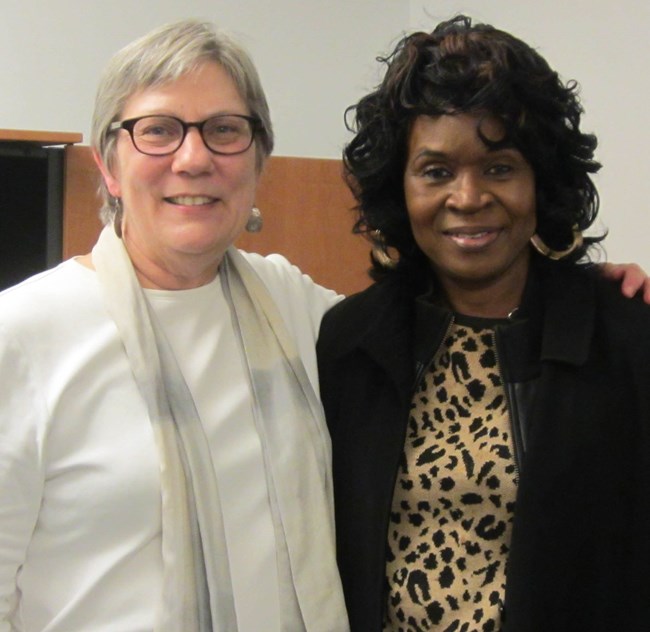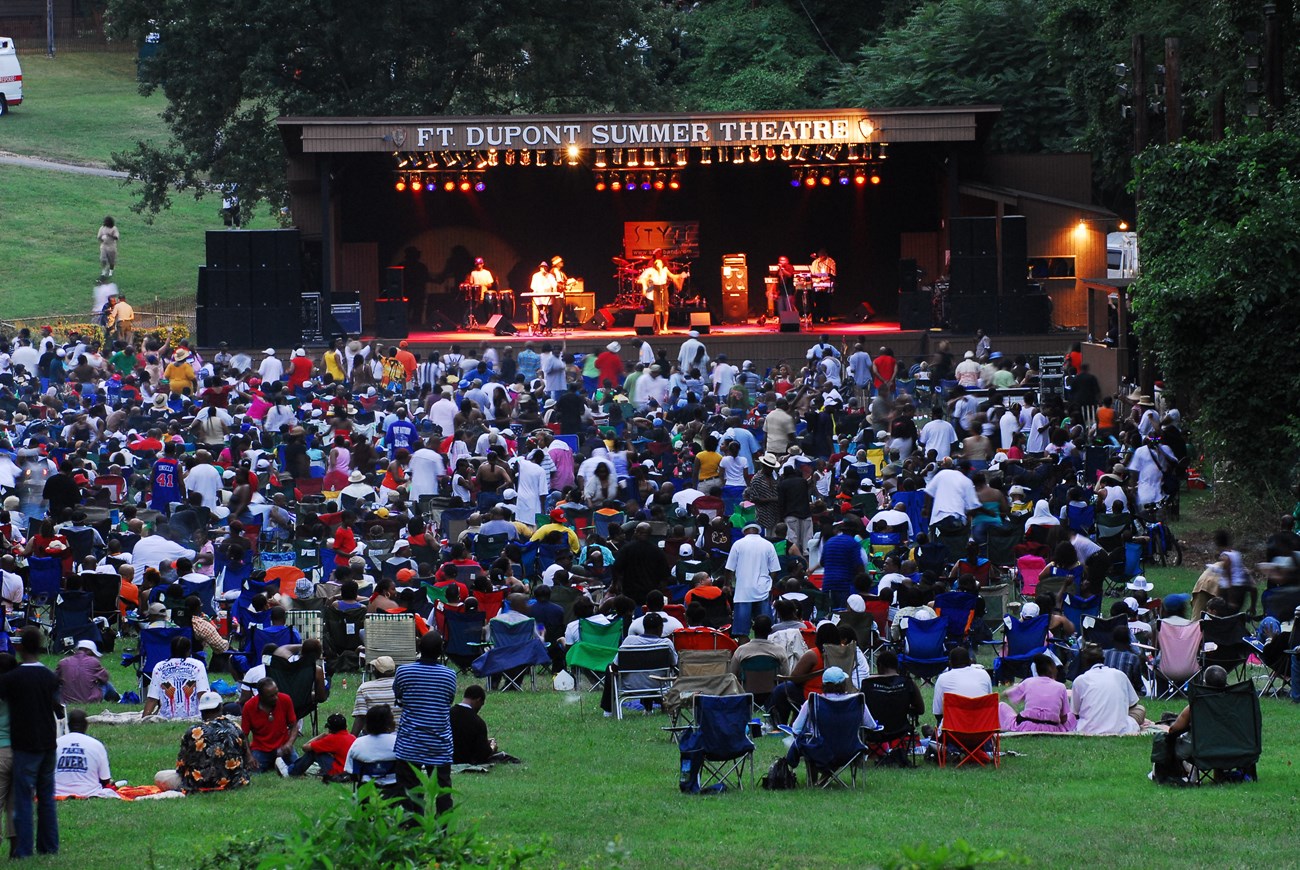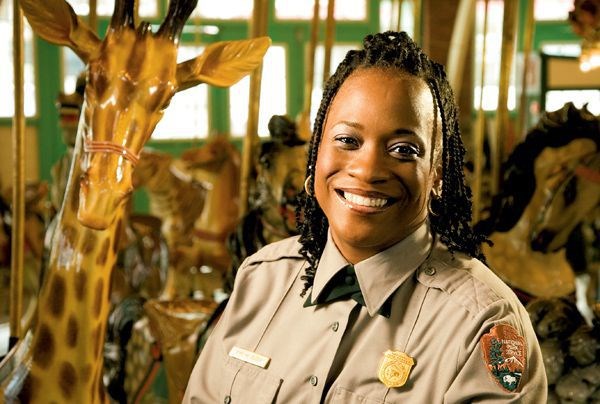Last updated: September 7, 2023
Article
Tina Short and Kym Elder: "The Story of People that Look Like Me"
National Park Service (NPS) employees are the stewards and storytellers of American history—and they are also part of it. In the 1970s Tina Short was among the first African American women to serve as a park ranger in the National Capital Area. Her daughter, Kym Elder, followed in her footsteps and eventually served as superintendent at Ford’s Theatre and program manager at the Civil War Defenses of Washington. Both women found creative and thoughtful ways to make urban parks relevant to their communities and to spotlight African American history.
Tina Short

Image courtesy of Lu Ann Jones
“I went running up to him,” Short said. “All the kids were running to him, and I wanted to pat the horse. I was so adamant about the fact that that was what I wanted to be when I grow up--I want a horse and a hat.”
When she expressed a desire to become a ranger herself, she also remembered someone telling her: “Sweetheart, they don’t have colored people and they sure don’t have ladies.”
In the 1970s, the National Park Service began diversifying its work force, and Short decided to make good on the childhood dream. She joined the ranks of rangers after completing courses at American University and graduating from the rigorous Ranger Skills training at Albright Training Center at the Grand Canyon where she learned to rappel, conduct search and rescue, plan interpretive programs, and complete administrative duties.
On home turf at Fort Dupont, Short designed programs attuned to community needs. “We never told the community what to do,” she observed. “They always told us what to do.”

Courtesy of Tina Short
A career with the National Park Service gave Short the opportunity to take short-term assignments throughout the United States and abroad and temporary duties as a firefighter and a member of search and rescue teams.

NPS
Kym Elder

Courtesy of Kym Elder
As a sixth grader, Elder accompanied her mother to the Ranger Skills training at the Grand Canyon. “I have to admit that the students weren’t very kind to me out there,” she recalls. “I think it was just because they had never experienced having a Black kid in their classroom.” She left the Grand Canyon with a new perspective of the country and experience in practicing habits of respect for everyone that her parents had instilled in her.
Elder’s own career with the NPS began in the 1980s at Frederick Douglass National Historic Site. “It was a very easy fit because the Park Service allowed me to work in areas that I could be of benefit to others and to help tell American history and African American history. Ironically over the last thirty-three years, my career has always been around African American history and civil rights. And women’s rights.”
-
Kym Elder on Developing NPS History Programs
Kym Elder describes her role as a ranger and site manager to share lesser known history and to "tell the story of people that look like me." From an Oral History interview conducted by Lu Ann Jones in 2020.
- Credit / Author:
- NPS Park History Program
- Date created:
- 02/22/2021
-
Kym Elder at Glen Echo
When she learned about the history of segregation as a site she managed, Kym Elder responded by researching, strengthening partnerships, and ensuring that this part of the site's history was told.
- Credit / Author:
- NPS Park History Program
- Date created:
- 02/22/2021
During a stint as a National Capital Area special emphasis recruitment officer, Elder visited Historically Black Colleges and Universities, tribal colleges, and other venues to encourage a diverse group of young adults to work for the NPS. She and the Equal Employment Opportunity officer also visited parks and assessed hiring practices.
-
Kym Elder on Building a Diverse Workforce
Reflecting on her experience as a special emphasis recruitment officer in the National Capital Area, Kym Elder speaks about some considerations for hiring diverse candidates.
- Credit / Author:
- NPS Park History Program
- Date created:
- 02/22/2021
Or well-intentioned people ask, "What made you get into the Civil War, Kym?"
-
Kym Elder: "What made you get into the Civil War, Kym?"
In an oral history interview, Kym Elder speaks about her interest in Civil War history.
- Credit / Author:
- NPS Park History Program
- Date created:
- 02/22/2021

Courtesy of Tina Short
Tags
- civil war defenses of washington
- ford's theatre
- fort dupont park
- frederick douglass national historic site
- glen echo park
- oral history
- spotlight
- tina short
- kym elder
- black history
- nps employee
- interview
- working with the public
- washington d.c.
- nps history
- women's history
- african american women
- african american history
- nps careers
- women in the nps
- civil rights
- park ranger
- mounted rangers
- waso park history program
